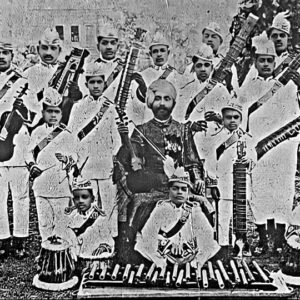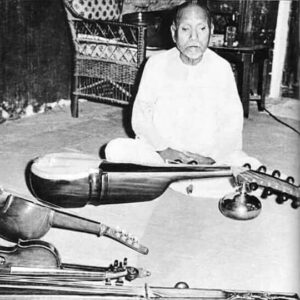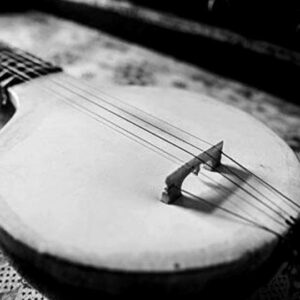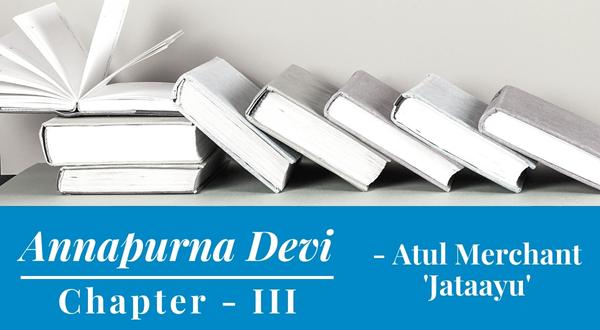Maihar Band
- Atul Merchant ‘Jataayu’ | merchatul@gmail.com
Baba gathered forty orphaned children and brought them to his house. He bathed them, fed them, and gave them accommodation in his house. Baba’s gesture became the talk of the town.
In 1918, the last year of World War I, the Spanish flu pandemic claimed 50 to 100 million lives worldwide, more than the death toll of both World Wars combined. An estimated 18 million Indians lost their lives to this mysterious flu between 1918 and 1920, making India the focal point of the pandemic.
 Maihar, too, was a victim of this pandemic. Soon after Baba Allauddin Khan went there, too many people died because of the pandemic, leaving behind countless orphans. Baba gathered forty orphaned children and brought them to his house. He bathed them, fed them, and gave them accommodation in his house. Baba’s gesture became the talk of the town. When the news reached the surviving relatives of the orphans, they started coming to Baba to take away their children, but seventeen children remained with him forever.
Maihar, too, was a victim of this pandemic. Soon after Baba Allauddin Khan went there, too many people died because of the pandemic, leaving behind countless orphans. Baba gathered forty orphaned children and brought them to his house. He bathed them, fed them, and gave them accommodation in his house. Baba’s gesture became the talk of the town. When the news reached the surviving relatives of the orphans, they started coming to Baba to take away their children, but seventeen children remained with him forever.
Considering the fact that he himself was not too literate, Baba decided to make these children proficient in music to enable them to earn a livelihood. When Brijnathsinghji learned of this, he allotted a building to be used both as an orphanage and a music school. The first batch of the Maihar Band consisted of twelve orphan boys and five orphan girls. Brijnathsinghji announced he would give an allowance of Rs 12 a month to each orphan child of the Maihar Band, thus saving Baba from spending from his own pocket.
Brijnathsinghji helped Baba in procuring and preparing the required instruments. Until the time a cello could be ordered and supplied, Baba got a sarangi made which measured twice the size of the usual one and named it the ‘sārangā’. When played with a large bow, it would give out a rich, deep tone, like that of a cello.
Apart from the usual instruments like the tablā, dholak, harmonium, and sitār, Baba used some special creations—the sārangā and sitārbanjo. He trained some of the children to play Western instruments including the piano, violin, and cello with equal ease. In the royal palace, arrangements were made for the band, and they played for visiting dignitaries from the gallery above the main hall. For the Maihar Band, Baba created several compositions based on Indian ragas. He also taught them some Western tunes.

Teaching the orphans of the Maihar Band, however, became a big headache for Baba. The poor children were not only rustic and illiterate, they couldn’t follow simple instructions or grasp elementary lessons. As a teacher, Baba’s regime was so harsh that twelve of the children ran away to the neighboring state of Nagod. After a month, with the intervention of Brijnathsinghji, they returned to Maihar to resume their training.
Baba achieved what seemed impossible. The children started performing well. When Brijnathsinghji heard about the progress of the Maihar Band children, he expressed his wish to listen to them. A time was set for them to go and perform in the palace.
The children were extremely excited to visit the grand venue. Baba gave them all a good bath and well-laundered uniforms, his wife Madina Ma groomed them the best she could. Baba took the children to the palace at 6.30 p.m. as the scheduled recital was at 7 p.m. However, to their dismay, Brijnathsinghji didn’t turn up until 9.30 p.m. and nobody offered them food or even drinking water. Some of the children were so hungry and tired that they fell asleep. Baba was utterly disgusted. He took the children home, left them there, and returned to the palace alone. Brijnathsinghji came to the court at 10 p.m. and asked where the children were.
Then and there, Baba submitted his resignation. A shocked Brijnathsinghji asked him the reason for such a drastic step. ‘These little children may be rustic orphans, but they came to your palace as performing artistes. You not only insulted them but you have insulted the music itself. I can no longer be your guru, nor can I be your court musician.’ Brijnathsinghji caught Baba’s feet and pleaded for forgiveness. He explained his predicament in detail—a major crisis as it was— which pacified Baba.

Baba again went to the children. Most of them had gone to sleep. Baba had to awaken them, dress them all up again, and bring them back to the palace. Despite the late hours and hardships, the children performed so well that Brijnathsinghji was enthralled. Soon, the Maihar Band became very famous. It became a status symbol to call the band for marriage functions and other important events. Baba and the Maihar Band traveled to numerous places to perform.
Initially, one of the orphans in the band was a blind boy. Baba had trained him to play the Jaltarang, a melodic percussion instrument that originated in India. The Jaltarang consists of a set of ceramic or metal bowls filled with water. The bowls are played by striking the edge with beaters, one in each hand. The pitch is adjusted by varying the level of water in the bowls.
The blind boy often faltered while striking the bowls; tipping them over and spilling the water. The whole orchestra would then have to pause until Baba returned it by refilling the bowl with the precise level of water that was previously in it to resume the playing.
Baba was on the lookout for a solution, and with extraordinary serendipity, he found a terrific one.
(to be continued)








Comment (1)
An excellent piece of exposition on Maihar Band .I am eagerly looking forrward to go through the subsequent parts of the article!